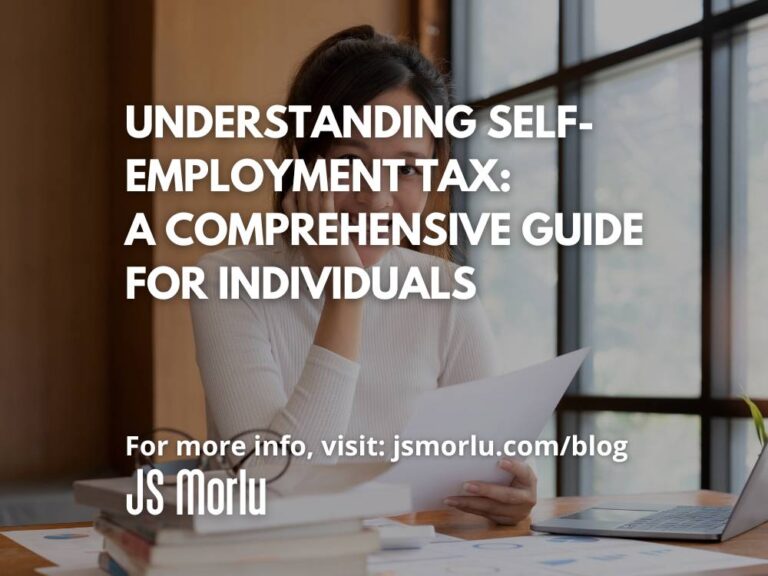Self-employment tax is a crucial aspect of taxation for individuals who work independently, encompassing Social Security and Medicare taxes. Diverging from the traditional employer-employee dynamic, self-employed individuals shoulder both halves of these taxes. In this comprehensive guide, we will delve into the nuances of self-employment tax, exploring its applicability, exemptions, rates, and strategies for optimization.
What is Self-Employment Tax?
Self-employment tax is applicable to individuals who operate their own businesses and generate a net profit. This profit, typically reported on Schedule C, triggers the imposition of self-employment tax when it exceeds $400 in a tax year. Whether you’re a full-time business owner, freelancer, or engaged in gig work, if you work for yourself, you are subject to self-employment tax.
Exemptions from Self-Employment Tax
While self-employment tax is a common obligation for independent workers, there are exemptions. Notable exemptions include a shareholder’s portion of an S corporation’s taxable income, fees for notary public services, and income from real estate rentals. Members of the clergy taking a vow of poverty and termination payments for former insurance salespeople are also exempt.

Understanding the Rates
The self-employment tax rate for 2024 stands at 15.3% on the first $168,000 of net self-employment income. This comprises a 12.4% Social Security tax and a 2.9% Medicare tax. For net profits exceeding $200,000 for single taxpayers (or $250,000 for married filing jointly), an additional 0.9% Medicare tax applies.
Managing Combined Income
For individuals with both self-employment income and wages from an employer, the self-employment income subject to the 12.4% portion of the tax cannot surpass the $168,000 cap for the year minus the amount of W-2 income subject to FICA withholding. This ensures fair taxation for individuals juggling multiple income streams.
Deductions for Self-Employed Individuals
Self-employed individuals can alleviate their tax burden by deducting half of their self-employment tax from their gross income when calculating their tax liability. Although not claimed as a business expense on Schedule C, this deduction reduces the individual’s adjusted gross income.

Optional Methods for Low Earnings or Loss
Two optional methods, the Farm and Non-Farm Optional Methods, offer relief for individuals with low earnings or losses from self-employment. The Farm Optional Method is tailored for self-employed farmers, allowing them to report two-thirds of their gross farm income, up to $6,560, for Social Security purposes. Similarly, the Non-Farm Optional Method benefits those with net non-farm profits below $6,560. However, these methods are applicable only if they result in a higher self-employment tax than the regular method.
Handling Foreign Earned Income
Even individuals qualifying for the Foreign Earned Income Exclusion must pay self-employment tax on their foreign earned income. Totalization Agreements with certain countries aim to prevent double taxation of income concerning social security taxes. However, careful consideration is required to determine whether any foreign social security tax can be credited against U.S. self-employment tax.
Conclusion
Navigating the intricacies of self-employment tax is crucial for individuals working independently. From exemptions to rates and optional methods, understanding these aspects is essential for effective tax planning. If you have questions regarding self-employment tax and its implications, reach out to our office for personalized guidance. Remember, staying informed is the first step toward managing your self-employment tax obligations effectively.
JS Morlu LLC is a top-tier accounting firm based in Woodbridge, Virginia, with a team of highly experienced and qualified CPAs and business advisors. We are dedicated to providing comprehensive accounting, tax, and business advisory services to clients throughout the Washington, D.C. Metro Area and the surrounding regions. With over a decade of experience, we have cultivated a deep understanding of our clients’ needs and aspirations. We recognize that our clients seek more than just value-added accounting services; they seek a trusted partner who can guide them towards achieving their business goals and personal financial well-being.
Talk to us || What our clients says about us


